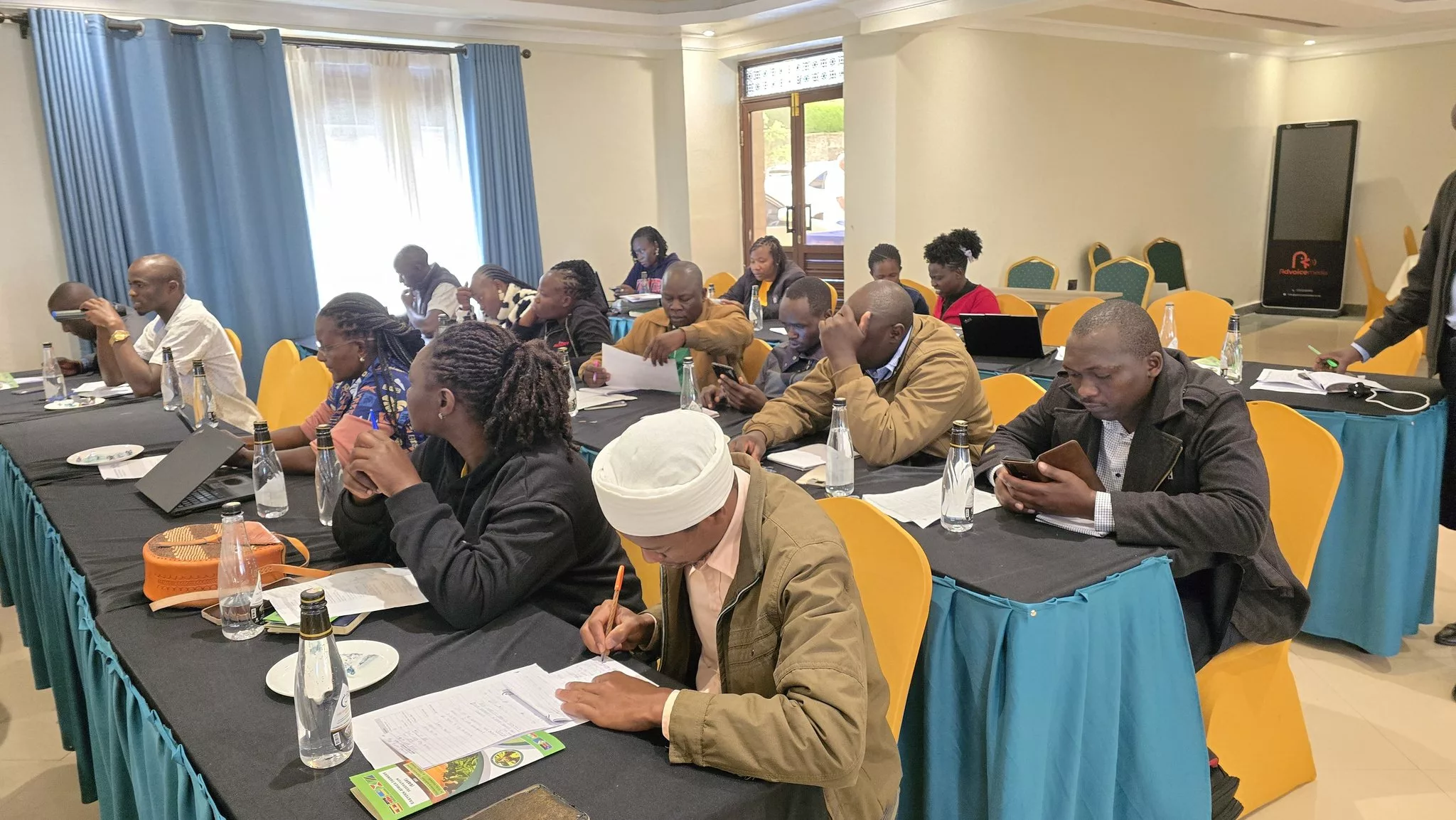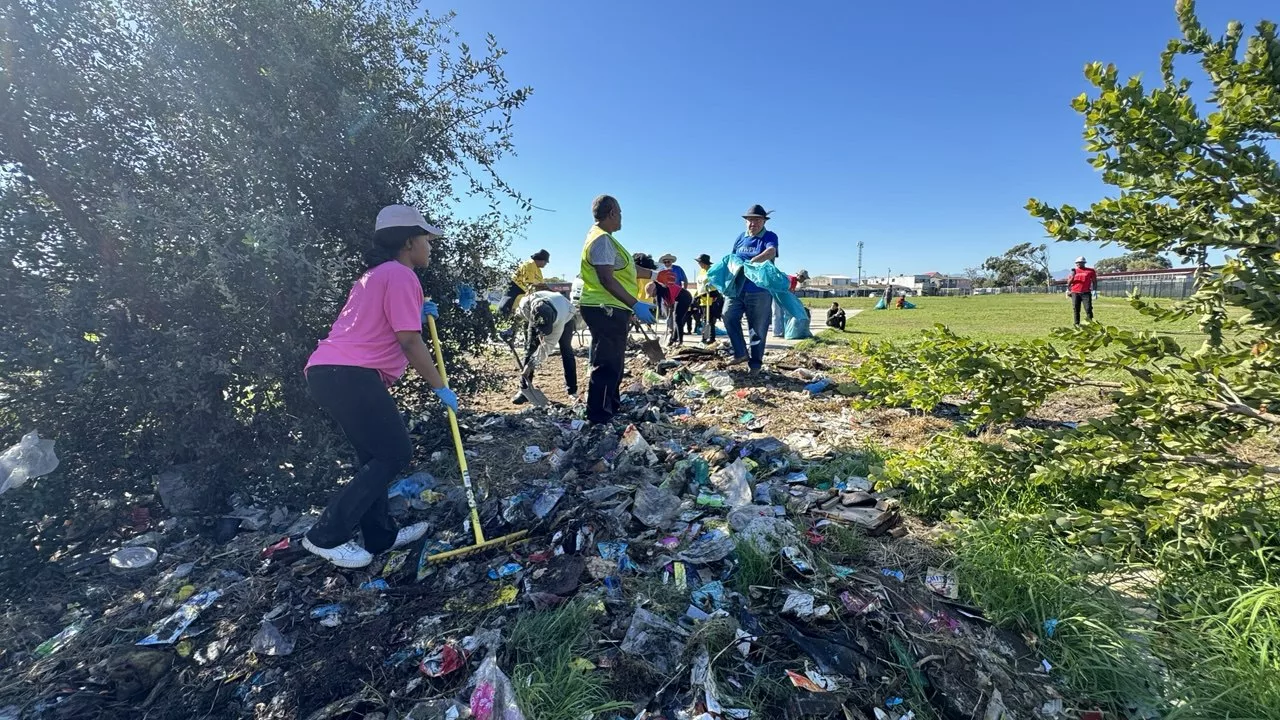|
Getting your Trinity Audio player ready...
|
The Eastern Africa Farmers Federation (EAFF) has raised alarm over food safety in the region, particularly in maize production, amid concerns that failure to address these issues could impact negatively on regional trade.
Speaking at a workshop in Bomet County, EAFF Chairman Philip Kiriro emphasized the importance of tackling food safety challenges to prevent potential exclusion from regional markets.
“If we do not address food safety, especially in maize—a staple across the region—we risk being pushed out of the market, which is now open to all,” Kiriro said.
The workshop brought together key stakeholders, including County Executive Committee Members for Agriculture from Bomet, Trans-Nzoia, Busia, Tharaka Nithi, and Nakuru counties, as well as ward representatives, farmers, researchers, policymakers, and industry experts.
The event focused on aflatoxin management, a pressing challenge affecting food security and public health in Eastern Africa.
Kiriro added that aflatoxins, toxic compounds produced by Aspergillus flavus fungi present in soil, contaminate crops during growth and can worsen during post-harvest handling.
The contamination poses serious health risks and affects trade, food security, and economic stability.
“Many of our members are deeply concerned about aflatoxin contamination in maize, as well as in other crops like soybeans, groundnuts, and green grams,” said Kiriro.
“Our aim is to make our produce profitable, but this is only possible if we ensure food safety across the board.”
The EAFF chairman expressed worries that failure to meet food safety standards could lead to increased reliance on maize imports from neighboring countries to meet local demand.
“We are collaborating with counties and small-scale farmers to ensure our food meets required safety standards,” he noted.
Kiriro stressed on EAFF’s commitment to supporting farmers through knowledge and resources to combat aflatoxin contamination.
“Protecting the health and livelihoods of farmers, particularly small-scale producers, is central to EAFF’s mission. We must equip them with the tools and training needed to mitigate this risk.”
The workshop in Bomet is part of a broader initiative led by EAFF in collaboration with organizations such as the Max Rubner Institute, Kenya Agricultural and Livestock Research Organization (KALRO), the University of Nairobi, Jomo Kenyatta University of Agriculture and Technology, and Julius Kühn Institute.
The project, titled SoLFooD (Ecological, Technological and Capacity-Building Strategies for Sustainable Optimization of Local Maize-Based Food Systems), aims to enhance maize production at the smallholder level, reduce mycotoxin contamination, and develop alternative uses for contaminated crops.
Rosa Chepngetich, Bomet County’s Executive for Agriculture, Livestock, Fisheries, and Cooperatives, underlined the wider implications of unsafe food.
“Unsafe food not only endangers individual health but also burdens healthcare systems, undermines the economy, and impacts sectors like tourism and trade,” she said.
Chepngetich detailed ongoing county measures to tackle food safety, including rolling out safety guidelines, running awareness programs for public health officers, and setting up mini-labs for aflatoxin analysis.
“Bomet County has taken a proactive approach, partnering with organizations like EAFF to bolster food safety and ensure what we consume is safe,” she added.
The EAFF, representing over 25 million farmers across 10 Eastern African countries, continues to advocate for farmers’ rights and sustainable agricultural practices to strengthen food security and economic resilience in the region.
Kiriro concluded, “This workshop is a testament to our dedication to empowering farmers with the tools and knowledge needed to thrive in an evolving agricultural landscape while ensuring a safer, healthier future for all.”
Source: KNA






